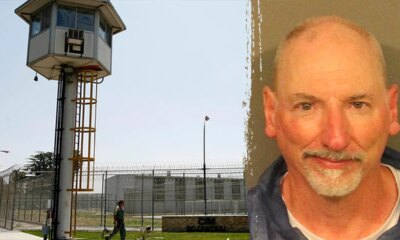California
Disneyland Reaches California Record $233 Million Wage Theft Settlement With Workers
The Walt Disney Co. has reached a California record $233 million settlement with Disneyland workers over a 2019 class-action wage theft lawsuit.
The settlement will provide back pay to workers at the Anaheim theme park, with interest dating back to the start of 2019, and comes as Anaheim is set to raise the minimum wage to $20.50 per hour at the start of 2025. Disney approved the preliminary settlement on Friday and it will be reviewed by a Superior Court judge on Jan. 17 before workers are notified.
The lawsuit alleged that in 2019, Disney did not adjust wages in accordance with the passage of Measure L, an Anaheim ballot proposition that required companies that received tax rebates from the city — namely Disney — to pay at least $15/hour.
Disney’s attorneys argued that it did not have tax rebate agreements with Anaheim and wasn’t subject to the terms of the law. A judge initially sided with Disney, but an appellate court reversed the decision after it was determined that such agreements were made with the city as part of a 1996 expansion deal that helped pave the way for the creation of Disneyland’s neighbor park, Disney’s California Adventure.
The California Supreme Court later turned down Disney’s request to hear the case, ending the legal battle.
The settlement is the latest victory for Disneyland workers after a multiyear labor campaign in which employees outlined the financial struggles they face despite being employed by the beloved “Happiest Place on Earth.” The park’s employees staged protests outside the entrance to the Disneyland Resort and shared stories of their struggles to reporters and on social media.
Their struggle even reached the attention of Walt Disney’s grandniece, Abigail E. Disney, who interviewed Disneyland employees for her 2022 documentary, “The American Dream and Other Fairy Tales.” Some employees told her that they had to live out of their cars on the streets of Anaheim and struggled to even provide food for their families.
Along with the lawsuit, Disney workers pushed for stronger wages through their union reps at the Master Services Council, a coalition of four unions that represent over 14,000 Disneyland employees. After voting to authorize a strike, MSC members and negotiators reached a deal that raised base pay to $24/hour.
The post Disneyland Reaches California Record $233 Million Wage Theft Settlement With Workers appeared first on TheWrap.

California
Rep. Kevin Kiley announces run in California’s redrawn 6th Congressional District

Congressman Kevin Kiley has announced his plan to run in California’s newly redrawn 6th district.
In a statement on Monday, Rep. Kiley revealed he had considered running in the 5th District – which could have set up a possible showdown between two current Republican officeholders.
“It’s true that I was fully prepared to run in the new 5th, having tested the waters and with polls showing a favorable outlook in a “safe” district. But doing what’s easy and what’s right are often not the same,” Kiley stated.
Kiley currently represents California’s 3rd district, which originally comprised counties making up much of the back spine of the state.
As of the Prop. 50 redistricting push, the 3rd district was redrawn for the 2026 midterm election to lean toward the Democratic Party – with those eastern spine of California counties lopped off and more of Sacramento County, including Rancho Cordova, added.
California’s new 6th district is now comprised of Rocklin, Roseville, Citrus Heights, much of North and East Sacramento, and the city of West Sacramento. Democratic Rep. Ami Bera currently represents the district, but will be running for the new 3rd district in 2026.
Other declared candidates for the 6th district include Democrats Lauren Babb Thomlinson, Thien Ho, Richard Pan, Kindra Pring, Tyler Vandenberg, and Republicans Christine Bish, Craig DeLuz, and Raymond Riehle.
Kiley was first elected to the House in 2022 and was reelected in 2024.
California
Preliminary magnitude 3.3 earthquake strikes near San Ramon, USGS says

SAN RAMON, Calif. (KGO) — An earthquake with a preliminary magnitude of 3.4 struck near San Ramon at 11:21 p.m. Sunday, the U.S. Geological Survey said.
USGS said the tremor was about 8.4 km in depth.
According to the Geological Survey, people typically report feeling earthquakes larger than about magnitude 2.5.
The closer to the surface an earthquake occurs, the more ground shaking and potential damage it will cause.
No injuries have been reported.
This is the latest quake in San Ramon, which has seen multiple strings of tremors in the past several months.
Bay City News contributed to this report.
MAP: Significant San Francisco Bay Area fault lines and strong earthquakes
Zoom in on the map below and compare where you live to the significant faults and where strong earthquakes have struck in the Bay Area.
Stay with ABC7 News for the latest details on this developing story.
RELATED STORIES & VIDEOS:
Copyright © 2026 KGO-TV. All Rights Reserved.
California
More SoCal rallies for and against military action in Iran expected on Sunday and Monday

LOS ANGELES (KABC) — Worshippers across Los Angeles were met with an increased law enforcement presence on Sunday as police and sheriff’s deputies stepped up patrols outside mosques, synagogues and cultural landmarks following the strikes on Iran.
Local officials said there are no credible threats to Southern California, but the Los Angeles Police Department and the Los Angeles County Sheriff’s Department heightened visibility as a precaution to ensure communities stay safe.
More demonstrations tied to the attack on Iran are expected Sunday and Monday. Several protests were held across Southern California on Saturday.
READ MORE | Rallies for and against military action in Iran draw demonstrators across Southern California
While Iranian-Americans celebrated in Westwood, protesters gathered in downtown Los Angeles to oppose the Trump administration’s attacks against Iran.
While some groups gathered in downtown Los Angeles to protest the strikes, others assembled in Westwood to celebrate “the fall of the Ayotollah,” according to organizers.
Authorities said they will continue monitoring events as the region prepares for additional gatherings in the days ahead.
This is a developing story. This article will continue to be updated as more information becomes available.
Copyright © 2026 KABC Television, LLC. All rights reserved.
-

 World5 days ago
World5 days agoExclusive: DeepSeek withholds latest AI model from US chipmakers including Nvidia, sources say
-

 Massachusetts5 days ago
Massachusetts5 days agoMother and daughter injured in Taunton house explosion
-

 Denver, CO5 days ago
Denver, CO5 days ago10 acres charred, 5 injured in Thornton grass fire, evacuation orders lifted
-

 Louisiana1 week ago
Louisiana1 week agoWildfire near Gum Swamp Road in Livingston Parish now under control; more than 200 acres burned
-

 Technology1 week ago
Technology1 week agoYouTube TV billing scam emails are hitting inboxes
-

 Politics1 week ago
Politics1 week agoOpenAI didn’t contact police despite employees flagging mass shooter’s concerning chatbot interactions: REPORT
-

 Technology1 week ago
Technology1 week agoStellantis is in a crisis of its own making
-

 News1 week ago
News1 week agoWorld reacts as US top court limits Trump’s tariff powers





















